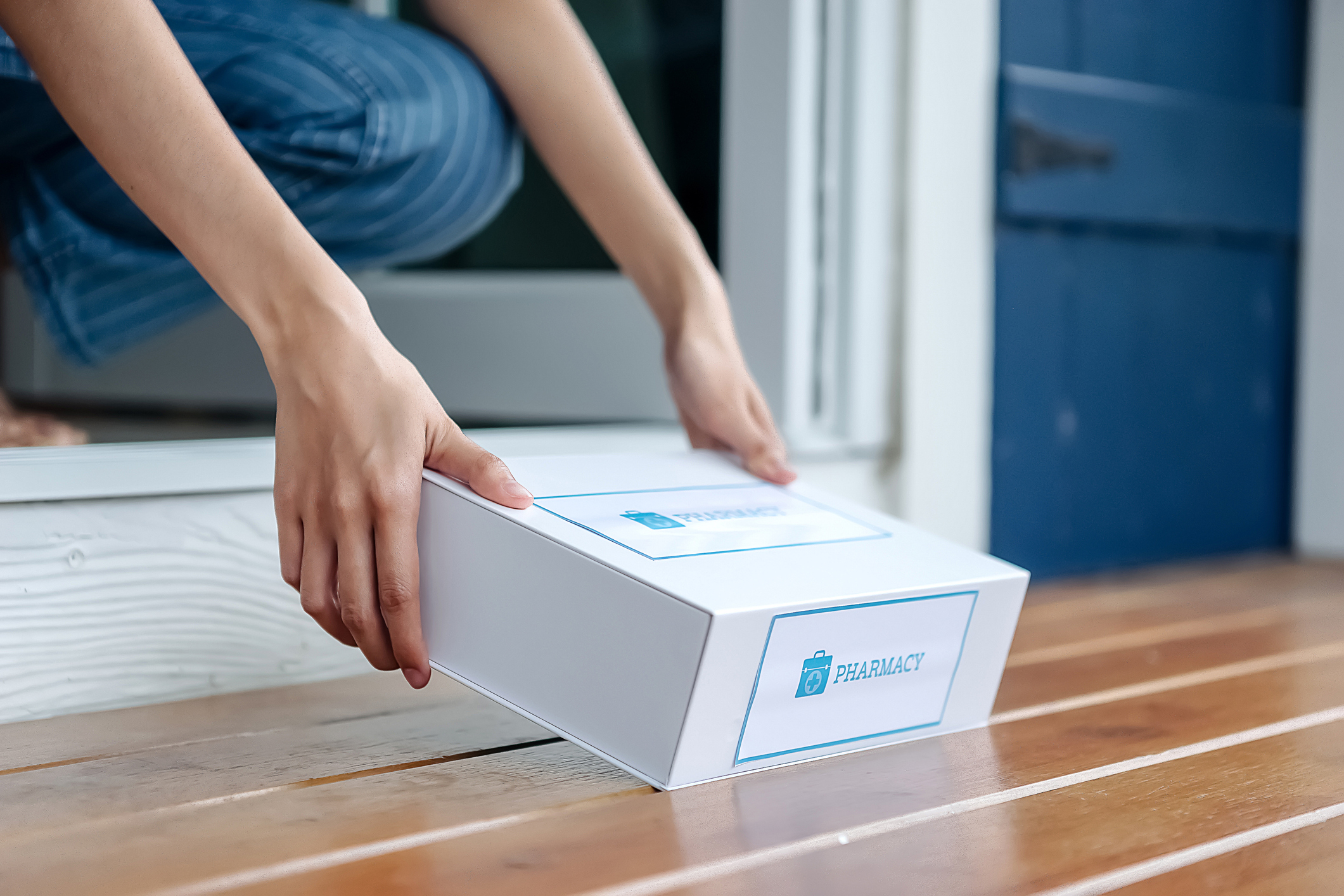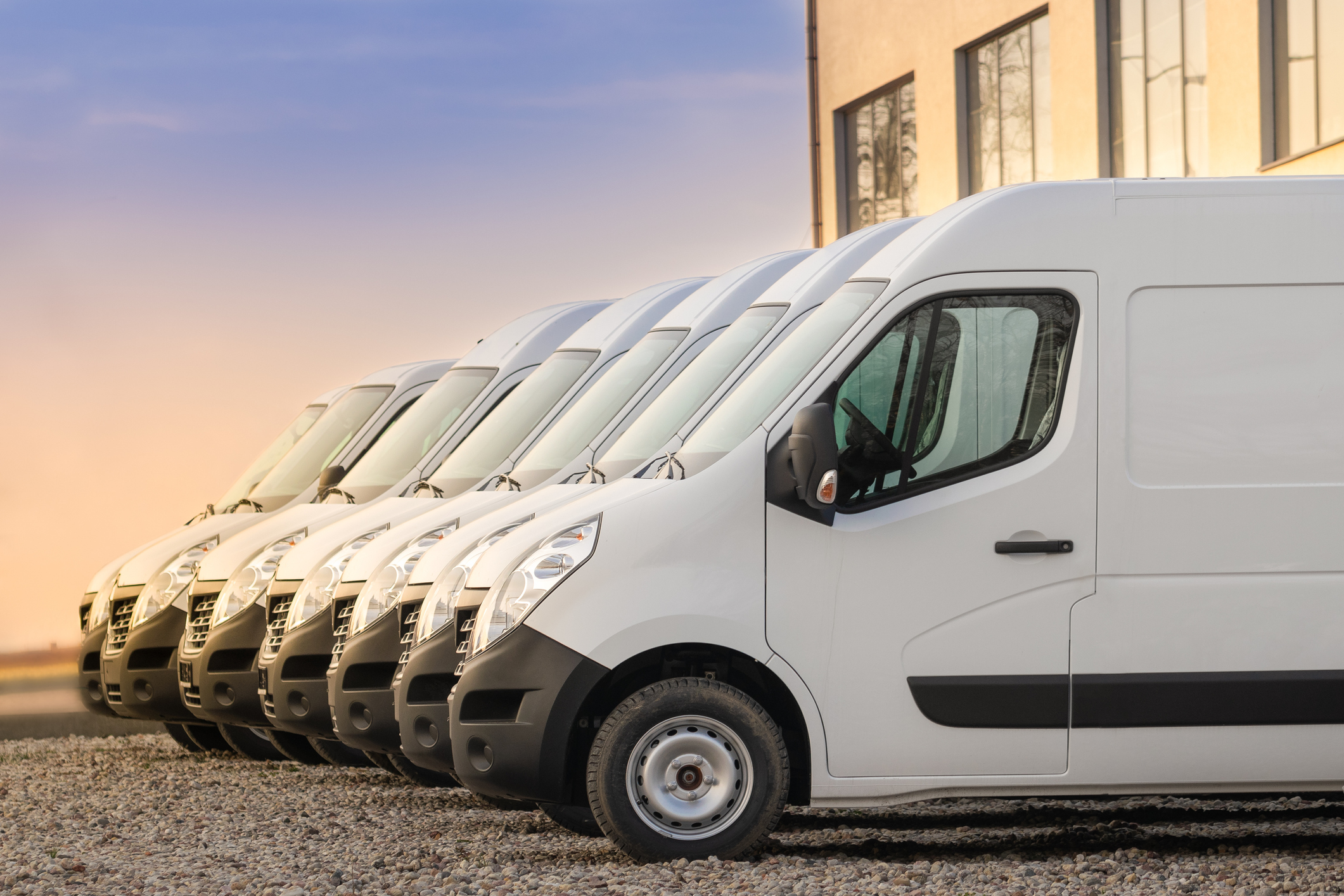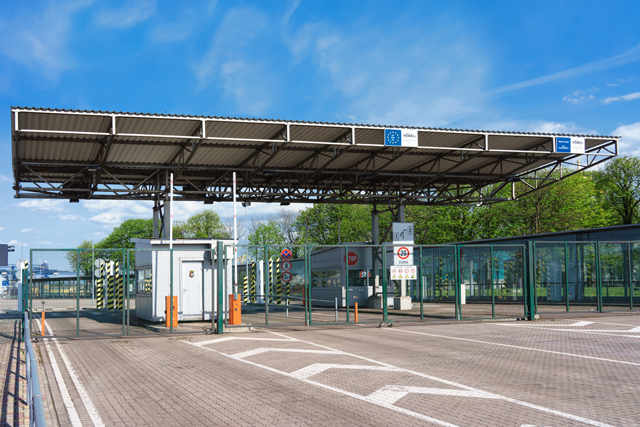Starting your own business comes with a high sense of flexibility and freedom. It also opens doors for you to serve through your talents, skills, and passion as a courier business owner.
Today, there are plenty of entrepreneurial opportunities. One such venture is a courier business.
In the US, the delivery industry offers endless opportunities to become a successful courier business. Although starting a courier business from scratch requires a lot of hard work and determination, the process can be faster and easier with the backing of the right resources.
Read on to learn how to start a courier service business.
- What is a Courier Business?
- 1. Choose your Area of Expertise or Focus
- 2. Find Your Target Market
- 3. Prepare a Business Plan
- 4. Come Up With a Business Name and Logo
- 5. Get the Right Vehicles
- 6. Get the Right Insurance Coverage
- 7. Consider Loan Options
- 8. Set Up A Storage Space
- 9. Choose the Right Business Structure
- 10. Meet All Legal Requirements
- 11. Market Your Courier Business
- How to Establish a Niche
- Equipment You Need to Start a Courier Business
- Saving Time and Money with Courier Delivery Software
- Benefits of RouteManager
- FAQs
- Closing Thoughts
What is a Courier Business?

A courier business is a service that specializes in the delivery of packages, documents, and other items from one location to another. Unlike traditional postal services, couriers typically offer faster and more reliable delivery options, often providing same-day or next-day service.
Courier businesses cater to various clients, including individuals, small businesses, and large corporations. They can handle a wide range of items—from important legal documents to perishable goods—ensuring that deliveries are made promptly and securely.
As e-commerce continues to grow, the demand for reliable delivery services is at an all-time high. Whether you’re looking to operate locally or expand nationally, here are some essential steps to guide you in establishing your own courier service. As with most business ventures, learning how to start a courier service business is a process. Before you can launch your business, you need to follow these 11 simple steps:
1. Choose your Area of Expertise or Focus

When starting a courier business, it’s crucial to identify your niche or area of expertise. These different types of courier services could include specialized delivery services, such as medical deliveries, food delivery, same-day delivery, or package consolidation for e-commerce businesses. Understanding your target market will help you tailor your range of services and marketing efforts effectively.
2. Find Your Target Market
You need to identify your target market. Remember, yours is a small courier business, and your competitors are big package delivery companies, such as DHL, FedEx, and other big and medium players. Therefore, to remain competitive, you need to select a specialty.
For example, you can focus on offering fast delivery in one geographical area. Alternatively, you can specialize in delivering a particular brand or several products, such as flowers, confidential documents, or medicine.
3. Prepare a Business Plan
After identifying your target market, the next step is to write a comprehensive and solid business plan. Such a plan considers market research, pricing, and estimates of your courier business’s expenses and revenues.
A business plan guides you at the beginning of the business and helps secure investors and investments for your small business.
4. Come Up With a Business Name and Logo
It is essential to have a brand name that reflects what you intend to do and how you’ll do it.
The name should resonate with your prospective customers, and no other company should be using it. That can be challenging, but you can devise a short, memorable business name with a bit of creativity.
Additionally, after settling on a suitable name, create a professional logo for your company. Once more, creativity is much needed here. The logo should be highly recognizable, distinguishing your business from the rest.
5. Get the Right Vehicles

To effectively start and run your courier business, you need to invest in one or two reliable vehicles.
While most courier companies use a cargo van for their deliveries, some use other means, such as bicycles or motorbikes.
Your geographical area of operation and field of specialty should determine the type of vehicle you need to purchase.
Just remember, vehicles are one of the most vital tools that determine the success of your courier business. Therefore, make sure you invest in a reliable car that won’t let you down along the way and help your company become a known reliable service in this industry.
Start Using Courier Software!
6. Get the Right Insurance Coverage
Your courier business will require various types of business insurance to protect you, your employees, and your assets. The most common insurance types for a courier service include:
- General Liability Insurance: This protects against claims of bodily injury or property damage.
- Commercial Auto Insurance: Essential if you’re using vehicles for deliveries, it covers accidents involving your delivery vehicles.
- Cargo Insurance: Protects the goods you are transporting in case of loss or damage during transit.
- Workers’ Compensation Insurance: If you plan to hire employees, this insurance is crucial as it covers medical costs and disability benefits if an employee gets injured while working.
Securing the right insurance coverage will not only safeguard your delivery business but also enhance your credibility with clients who may be concerned about the safety of their packages.
7. Consider Loan Options
Whether you have little money to invest or are trying to figure out how to start a courier business with no money, starting a courier business comes with quite a lot of expenses. This can necessitate applying for a loan to enable you to purchase the right equipment for your business.
If getting a business loan is not possible, consider a personal loan or a cash loan.
8. Set Up A Storage Space
Storage space is necessary for any courier business. It’s where you’ll store parcels and packages and sort them out before taking them out for distribution.
Make sure the storage space is safe. You want the packages to be secure all through.
9. Choose the Right Business Structure

Running a small courier business as a sole proprietorship, limited liability company (LLC), or partnership is often the simplest and most cost-effective way when it comes to legal structure for your business.
However, registering your courier business as a company would serve better if you bring in external investors or want to protect yourself against future liabilities.
10. Meet All Legal Requirements
As a law-abiding citizen, you need to follow all the legal procedures and get all the legal documents required to start a courier business.
These include business licenses, business permits, and other templates like service agreements and cancellation policies.
11. Market Your Courier Business
Once you have figured out how to start a courier business and all the steps required, you have to think about marketing. Your marketing strategies will depend on your target market. For example, if your specialty area focuses on bakers, florists, pharmacies, and other businesses requiring fast delivery, you can directly market yourself to these businesses.
Marketing strategies may include emailing, handing out business cards, and cold calling.
On the other hand, if your potential customers are primarily individuals, you need to diversify your marketing efforts to reach a wider audience. This may include making good use of social media platforms.
How to Establish a Niche

To establish the area where your services are much needed, you need to do extensive research.
Remember, courier services take various forms, and you need to figure out the area you can make the most out of, especially as a small courier business.
Through the research, you’ll also understand how the competition in your area shapes out. Then, you can set realistic expectations and lay strategies to cope with this competition.
Some of the niches you can exploit and venture into include:
- Luggage delivery
- Same-day shipping
- High-volume pallet shipments
- Next-day shipping
- Commercial package delivery
- International shipping services
Equipment You Need to Start a Courier Business
Here’s the equipment you require when considering starting a courier business:
- A delivery vehicle, such as a cargo van, motorbike, or pickup truck. The ideal vehicle to invest in will depend on your budget, quantity of deliveries, and package sizes.
- Cargo ropes, tapes, moving blankets, and straps to hold items securely and protect them.
- Hand truck dolly or trolley.
- Courier software to help manage your business tasks. It will enable you to operate effectively, no doubt how to be a courier successfully.
Saving Time and Money with Courier Delivery Software
Saving time and money is crucial for any business, including a courier service. One way to achieve this is by investing in courier delivery software like RouteManager. This type of software can streamline your operations, reduce errors, and improve efficiency in various aspects of your business.
Benefits of RouteManager
RouteManager is courier delivery software that helps drivers and delivery businesses with last-mile logistics. Some of the key advantages of using RouteManager include:
1. Advanced Route Planning: RouteManager utilizes advanced algorithms to create optimized courier routes that take into account factors such as traffic patterns, road conditions, and customer preferences. This ensures that drivers are taking the most efficient routes possible, saving time and fuel costs.
2. Real-Time Tracking: By providing real-time tracking of deliveries, businesses can monitor the progress of their drivers and ensure that deliveries are being made on time. This can help improve customer satisfaction and streamline operations.
3. Reporting & Analytics: RouteManager offers comprehensive reporting and analytics tools that allow businesses to analyze delivery performance, track key metrics such as delivery times and fuel consumption, and identify areas for improvement. This data-driven approach can help businesses make informed decisions to optimize their courier operations.
4. Integration with Existing Systems: Easily integrate with existing systems such as GPS devices, fleet management software, and customer relationship management (CRM) systems. This seamless integration streamlines the courier delivery process and ensures that all data is centralized and accessible in one place.
5. Customer Satisfaction: By optimizing courier delivery routes and providing real-time tracking updates, businesses can improve customer satisfaction by ensuring on-time deliveries and efficient service. A happy customer base is more likely to become repeat customers and recommend your services to others.
FAQs
1. What are the initial costs involved in starting a courier business?
Initial costs can vary depending on several factors, including your location, the type of vehicle needed, and whether you choose to purchase or lease equipment. You should account for vehicle costs, insurance, permits, software subscriptions like RouteManager, and other operational expenses.
2. How can I find clients for my courier business?
To find clients, consider networking within your community, joining local business associations, and leveraging online platforms. Additionally, consider creating a professional website, utilizing social media to promote your services, and even offering promotional discounts for first-time customers to attract new clients.
3. How do I ensure the safety of my packages during delivery?
To ensure package safety, invest in quality packaging materials and train your drivers on proper handling techniques. Additionally, implementing RouteManager can help monitor delivery conditions and provide real-time tracking, allowing you to keep an eye on packages throughout the delivery process.
4. How can I scale my courier business?
Scaling your courier business involves expanding your service area, increasing your fleet size, or diversifying the types of deliveries you offer. Consider investing in marketing to reach a broader audience, partnering with local businesses for bulk delivery contracts, and continuously analyzing performance data to identify opportunities for growth.
Closing Thoughts
Starting a courier business can be a rewarding venture if approached strategically. With the right planning, equipment, and software tools, you can create a successful operation that meets the needs of your target market. Understanding the competition and identifying niches in your area is crucial for setting realistic expectations and positioning yourself effectively.
One of the most important aspects of establishing your courier business is ensuring you have the right systems in place to manage operations efficiently. This is where investing in courier delivery software such as RouteManager becomes invaluable.
By utilizing RouteManager, you not only optimize your delivery routes but also enhance communication with customers through real-time tracking updates, therefore optimizing the customer experience. This transparency can significantly boost customer trust and loyalty, essential customer service components for long-term success in the competitive courier industry.
Investing in RouteManager can set your courier business apart from the competition, providing you with the tools necessary to adapt and thrive in an ever-evolving market. With features like advanced route planning, real-time tracking, and comprehensive reporting and analytics, you can not only manage your operations more effectively but also deliver exceptional service that keeps customers coming back. Ready to grow your business? Book a demo today!




